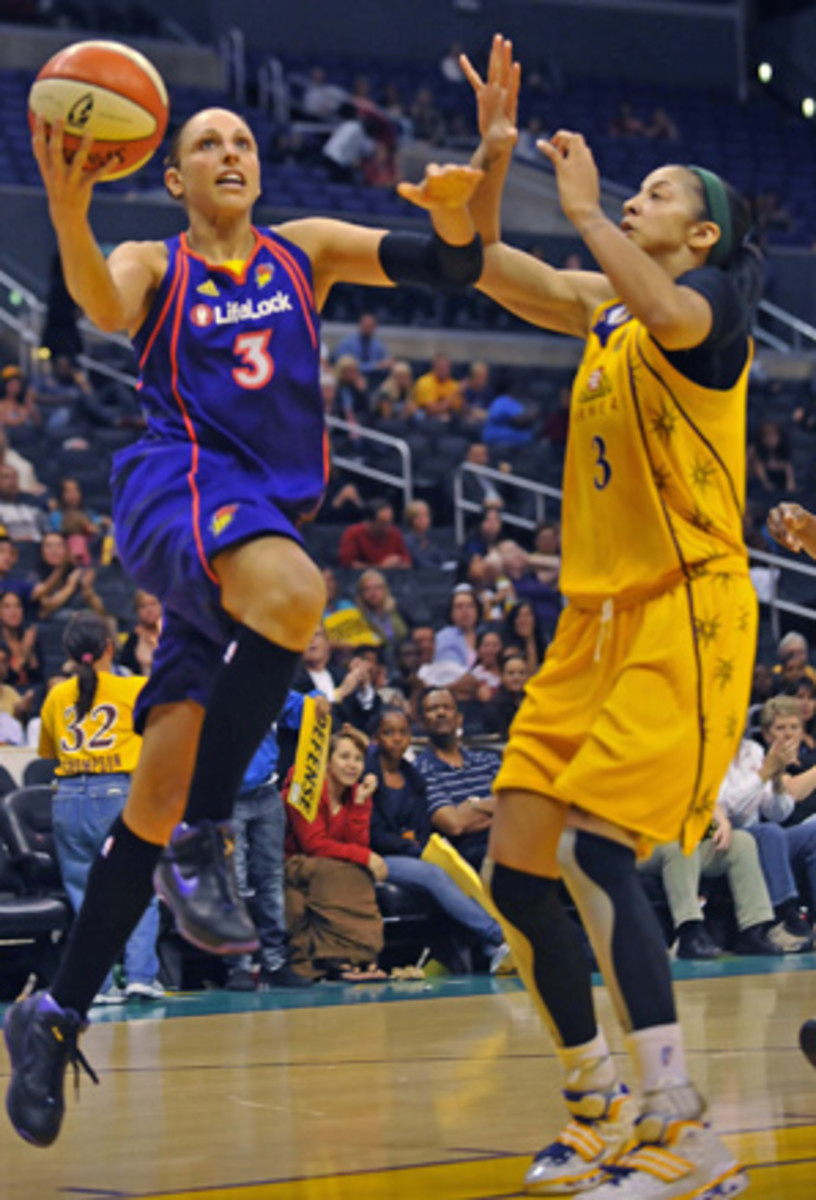Why the WNBA isn't -- and will never be -- a popular league


I can present 1,000 pounds of the world's most delicious Swiss chocolate to my sofa, and it will never take a bite.
I can hook up Gene Simmons with the best vocal coach humanity has to offer, and his singing won't improve.
Dogs don't speak fluent Spanish. Penguins don't enjoy Mahjong. My late grandmother can no longer bake cookies and my cell phone refuses to walk to the refrigerator and grab me a Yoo-hoo (Trust me, I've asked).
In other words, some things are simply impossible.
They have not happened.
They will not happen.
They cannot happen.
Enter the WNBA.
America's lone professional women's basketball league is in its 14th season of existence. Actually, I think it's in its 14th seasons of existence. But I'm not sure. Because nobody watches the WNBA. Nobody discusses the WNBA. Nobody seems especially interested in the WNBA. If a basketball league falls in the summer and nobody cares, is it still a basketball league?
Hmm ...
During the past 1 ½ decades, absolutely, positively everything under the sun has been tried in the name of WNBA popularity. There have been creative ad campaigns and admirable player outreach efforts. There has been expansion and relocation and contraction; blockbuster trades and highly touted No. 1 picks. In 2007, the WNBA and ESPN reached an eight-year television agreement, thus assuring high-impact exposure. WNBA players take part in the NBA's All-Star weekend and, at the conclusion of all games, sign autographs until their fingers bleed. When Lisa Leslie and Candace Parker dunked, the videos were distributed en mass and replayed hundreds of times (Writer's note: I'll say what nobody else has. The dunks were boring. Yes, they were women, and that's sort of cool. But a straight-ahead dunk is a straight-ahead dunk. Or, as a wise man once said, "If Darwin Cooke can do it, it's not so special.").
Despite all this, however, the league continues to dwell in anonymity. The action is all but ignored by the media, reduced to a tiny standings box on the bottom of the local newspaper's agate section. When the 2009 five-game championship series between Phoenix and Indiana averaged a puny .4 rating on ESPN2 (That's 548,000 viewers. By comparison -- and it's admittedly not a fair one --Game 5 of the NBA Finals drew 18.2 million viewers), the league celebrated the 73 percent rise from the previous season as if it had discovered a new planet.
In other words, the WNBA's emergence is a mathematical, sociological impossibility.
It has not happened.
It will not happen.
It cannot happen.
No matter how many women dunk, no matter how incredible the playoff action might seem, no matter if the league expands to Las Vegas and Cancun and hires the cast members of Glee to hand out $100 bills to every customer, well, the WNBA is what it is -- a fringe entity.
"I couldn't tell you most of the teams in the league," says Russ Bengtson, the former editor of Slam magazine and as devoted a basketball junkie as the world knows. "I couldn't name the Liberty starting five, or the Chicago starting five. I couldn't tell you who the top three draft picks were. In fact, I'm not sure whether I could tell you who the No. 1 pick was without a hint. Except for the tiny fan base, people just don't have an interest."
For the past 14 years, league employees have been trying to figure out why. Surveys have been conducted, marketing experts have tossed out every possible slogan (This year's: EXPECT GREAT!). The answer, however, is simple and, at this point, obvious: The majority of sports fans simply don't crave women's professional basketball.
They just don't. As blessed as women like Parker and Lauren Jackson and Diana Taurasi are at basketball, their skills are not in visual demand. Basketball fans want to see LeBron James dunk and Josh Smith soar through the air and Ron Artest lock down on an opposing scorer. They want to see Ray Allen launch a three from the middle of nowhere andDwight Howard hit the rim with his forehead. As the columnist Debbie Schlussel once wrote, "[The WNBA is] the lite beer version of basketball. ... The only difference is nobody's saying, 'Tastes great, less filling' about this."
There's no solution to this problem, no magical cure just waiting to be unleashed. Sue Bird will never be Deron Williamsand Tamika Catchings will never be Carmelo Anthony. If the NBA feels larger than life, the WNBA feels like, well, life. Nice, solid, pedestrian life.
Yawn.
